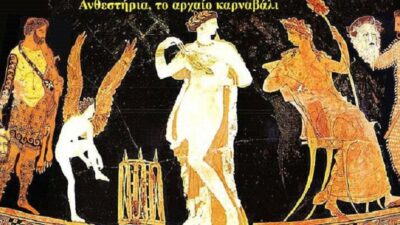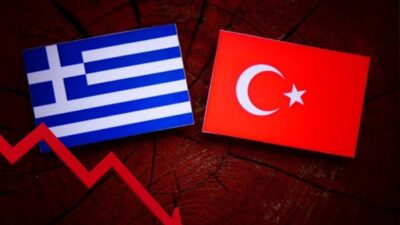Alexandros Tarkas: Immigration issue – Mitarakis’ new “crime”
28/01/2021
A sharp revival of the Immigration issue, which is temporarily in remission due to the pandemic and the short-term change of tactics in Ankara, is expected in the coming months as a result of government mistakes and lack of EU assistance. A major failure of the government, at the moment, is the plan of the Ministry of Immigration for the establishment of a new Reception and Identification Center, or for the expansion of the existing Center in the area of Orestiada border post.
The ministry is proceeding with its plans despite the reactions of local agencies. It forgets the basic principle of decades for a limited presence of Muslims in the prefecture of Evros, as well as the acquis of cross-party consensus against the plans of the Turkish Consulate General in Komotini, even during periods of heightened political passions (eg, the time of the Mitsotakis – Papandreou conflict in 1984-1993).
The main arguments of the supporters of the expansion of the Center at the Orestiada border post are that it will help prevent more illegal entrances and that the stay of those entering will be short. However, the reality is very different.
The theoretical plan for a short stay has been repeatedly refuted from 2015 until today. Apart from the well-known “nothing is more permanent than what is temporary”, the Greek state has great difficulty managing the problem even in relatively smooth periods. Especially in times of crisis with pressure from Turkey, the multiplication of incoming immigrants and the delay of reaction from the EU.
Those in the new Center will not be covered (Greece will not be protected) by the EU-Turkey Joint Declaration of March 2016 for their return-readmission to the neighboring country. The Joint Declaration, although agreed in a different context, ultimately concerns (as long as it applies) only those entering from the Aegean islands and not from the mainland.
Immigrant and pseudo-muftis
Therefore, the criminal networks of traffickers will send thousands of people to Thrace (instead of the islands only), with the promise that once they are in Greek territory, they will have the opportunity of temporary residence in our country or, later, in some other EU member states.
It is known that from June 2015 to March 2016, the Turkish consulate and the pseudo-muftis of Komotini and Xanthi had operated in a wide area from Kavala to Eidomeni, trying to exploit the thousands of passing Muslims of all nationalities. It was one of the “details” that led, in January 2020, Kyriakos Mitsotakis to the decision to re-establish the Ministry of Immigration, boldly stating that if he had known earlier what he had learned as prime minister, he would not have abolished it in July 2019.
Notis Mitarakis, who took over the critical portfolio, is committing a criminal mistake with the Center in Evros and the country will pay the consequences in the long run. At the same time, the government’s performance in negotiations with the Commission and its partners in the EU is below expectations. Before and after his visit to Berlin in August 2019, the Prime Minister had the unfounded expectation that Greece’s demands would be supported by Germany on the grounds that, as first host and final settlers, respectively, they had common interests.
Negative climate
Chancellor Angela Merkel did not share the reasoning of Kyriakos Mitsotakis, while her colleagues promised positive developments, mainly on asylum issues, around the end of the German presidency, in November or December 2020. However, the recent proposals of the Commission are not at all satisfactory. Among other things, the Greek positions on border procedures, the mechanism of relocation to other EU members, and the return of illegals to Turkey were not listened to.
Athens is optimistic that it will succeed in promoting specific issues of national interest as part of a general initiative, together with Italy, Malta, and Spain. Unfortunately, there is still not much hope of satisfying these demands. Apart from the negative atmosphere in the Commission (as a result of an offensive incident with the two-month delayed response of President Ursula von der Layen to a letter from Kyriakos Mitsotakis last year), the soil is not fertile in Warsaw, where FRONTEX is based. It is indicative that, at the official level, the reduction of migration flows to Greece is attributed by FRONTEX not only to Covid-19, but also to the deterrent action of the Turkish Security Authorities!





